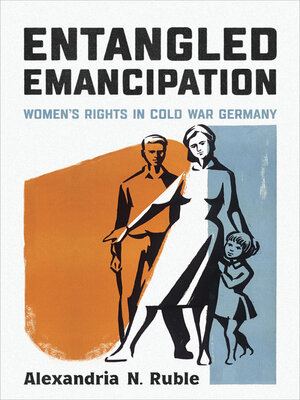Entangled Emancipation
ebook ∣ Women's Rights in Cold War Germany · German and European Studies
By Alexandria N. Ruble

Sign up to save your library
With an OverDrive account, you can save your favorite libraries for at-a-glance information about availability. Find out more about OverDrive accounts.
Find this title in Libby, the library reading app by OverDrive.



Search for a digital library with this title
Title found at these libraries:
| Library Name | Distance |
|---|---|
| Loading... |
In 1900, German legislators passed the Civil Code, a controversial law that designated women as second-class citizens with regard to marriage, parental rights, and marital property. Despite the upheavals in early twentieth-century Germany – the fall of the German Empire after the First World War, the tumultuous Weimar Republic, and the destructive Third Reich – the Civil Code remained the law of the land. After Nazi Germany's defeat in 1945 and the founding of East and West Germany, legislators in both states finally replaced the old law with new versions that expanded women's rights in marriage and the family.
Entangled Emancipation reveals how the complex relationship between the divided Germanys in the early Cold War catalysed but sometimes blocked efforts to reshape legal understandings of gender and the family after decades of inequality. Using methods drawn from gender history and discourse analysis, the book restores the history of the women's movements in East and West Germany. Entangled Emancipation ultimately explores the parallel processes through which East and West Germany reimagined, negotiated, and created new civil laws governing women's rights after the Second World War.







